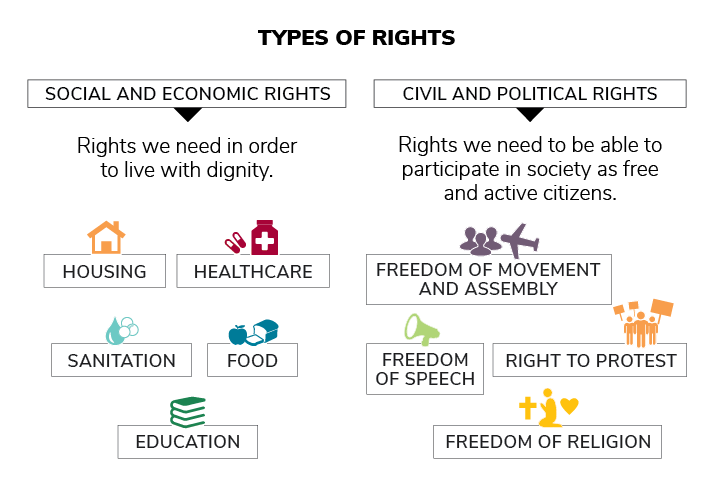What are the arguments for and against a Bill of Rights here in Australia?
Types of rights

Parliamentary Education Office (peo.gov.au)
Description
Social and economic rights are rights we need in order to live with dignity:
- housing
- healthcare
- sanitation
- food
- education.
Civil and political rights are rights we need to be able to participate in society as free and active citizens:
- freedom of movement and assembly
- freedom of speech
- right to protest
- freedom of religion.
This work is licensed under a Creative Commons Attribution-NonCommercial-NoDerivs 3.0 Unported License.
You are free to share – to copy, distribute and transmit the work.
Attribution – you must attribute the work in the manner specified by the author or licensor (but not in any way that suggests that they endorse you or your use of the work).
Non-commercial – you may not use this work for commercial purposes.
No derivative works – you may not alter, transform, or build upon this work.
Waiver – any of the above conditions can be waived if you get permission from the copyright holder.
A Bill of Rights is a list of the most important rights belonging to a country’s citizens. It is usually passed as a law through parliament and belongs to the domestic law of the country. Australia does not have a Bill of Rights.
There are many arguments for and against a Bill of Rights in Australia. The main organisation the deals with human rights in Australia is the Australian Human Rights Commission. They might be a good place to start your research.
If a Bill of Rights were to be introduced in Australia, it may involve changes to the Australian Constitution.
